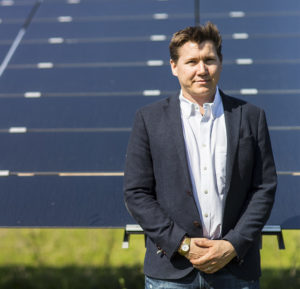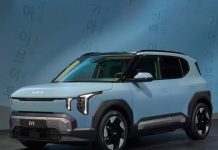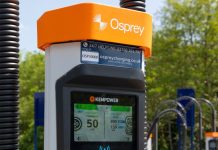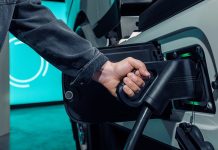 Electric vehicles and charging infrastructure is the chicken and egg of our times. Without the charging infrastructure, range anxiety persists, dampening uptake. Without the vehicles, infrastructure investors fear demand risk.
Electric vehicles and charging infrastructure is the chicken and egg of our times. Without the charging infrastructure, range anxiety persists, dampening uptake. Without the vehicles, infrastructure investors fear demand risk.
Toddington Harper, former CEO of Belectric, aims to crack that conundrum. Now CEO of Gridserve, Harper spent the two years since Innogy acquired Belectric hatching some eggs.
Now the brood is breaking cover.
Electric Forecourts
The company has unveiled plans to build 100 Electric Forecourts – it has even trademarked the name – with up to 24 ultrafast chargers at each site split between household and commercial users.
Over those two years, Harper says Gridserve has assessed over 6,000 potential sites and now has around 80 in various stages of planning. The aim is to build 20 forecourts within the next two years and over 100 within five – each with retail, services and restaurants – and EV showrooms or ‘experience hubs’.
Where possible, the firm will deploy megawatts of solar and storage at each site – as it is doing in York and Hull via a £62m deal with Warrington Council. Construction at the first of those projects, a 34.7MWp solar farm and 27MW battery storage system at York, is now underway.
Why is he doing this?
Harper bought a Tesla five years ago with money he made from building the 46MW Landmead solar farm, at the time the largest in the UK. He has “ultimate respect” for the carmaker since it launched a supercharger in the south of France after he called to ask how he might make it down to Montpellier. “They said ‘we are commissioning one there anyway, we’ll bring forward the installation to coincide with your trip’.”
“That is when I learned how amazing Tesla is,” says Harper. “But there were times when I was towed out of Stansted trying to find energy – because the chargepoints were poorly maintained and unreliable, even if you could find one you could use.” Moreover, in that instance he had forgotten his RFID key.
‘As easy as using a petrol station’
Harper says current UK charging infrastructure is improving, but is not good enough. He wants Electric Forecourts to have the same “awesomeness” as Tesla, and earn the same brand loyalty.
“All of the knowledge of real life issues has gone into what we are about to do. The cars are awesome, but the charging is challenging. We are going to make charging as easy as using a petrol station.”
Harper says the sites will have optimised queuing systems to avoid charge rage. “You don’t want to get that wrong.”
There will be up to 12 super chargers “capable of 500kW per charger” as well as up to 12 spaces for fleet and commercial vehicles per site. With a “well-organised queuing system”, the company’s modelling suggests drivers will typically be waiting “for a few minutes, which is acceptable”, Harper says.
Full service
Each forecourt will have a food outlet, with discussions underway with “a number of well-known high street brands”. The two-storey retail buildings also have the potential to house other services, “carwashes, haircuts, nails, spaces for email and admin … things that would otherwise take time out of the day,” says Harper.
But he also wants to make the sites “a nexus for the EVs themselves”.
“Every major car company is on a mission to go electric. It is quite difficult for people to understand the options and what is most suitable; there is an education piece. We want to be part of that process – and connect people directly with those solutions.”
Gridserve has yet to sign up carmakers, but Harper says the company is “having very positive conversations … it could be a very low cost way for people to learn about EVs, drive and acquire them”.
Chicken and egg
Developing grid scale solar and storage – and knowing how to optimise revenues – should help crack the “chicken and egg conundrum”, says Harper. “We know there are not yet enough EVs to justify the business case – hence requiring a combination of solutions,” he says.
Where possible, each site will be co-located with solar, but Gridserve will also build solar farms at other sites and create sleeving arrangements. It will also trade the power and flexibility from the solar and storage in all available markets.
But Harper admits it is an ambitious set of projects.
“You have to be a lot more creative than pure solar. It is much more complex and requires a range of different funding sources. But, like a solar project, each Electric Forecourt will be its own special purpose vehicle, with many income streams that are bankable.”
He is convinced the vision is achievable.
“Ten years ago, online shopping was quite hairy, Amazon didn’t really exist. Now it’s easier than the high street.
“People need to get from A-B. They don’t want to make sacrifices and businesses cannot cope with that.
“We are going to solve the problem.”
Related stories:
Warrington Council signs massive solar-storage-EVs deal
Click here to see if you qualify for a free subscription to the print edition or to renew.
Follow us at @EnergystMedia. For regular bulletins, sign up for the free newsletter.



